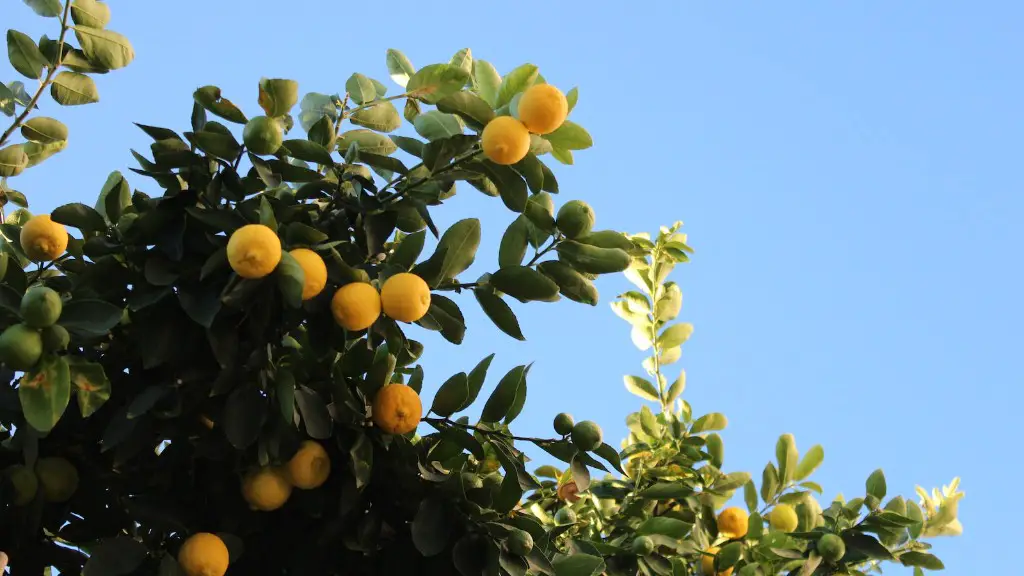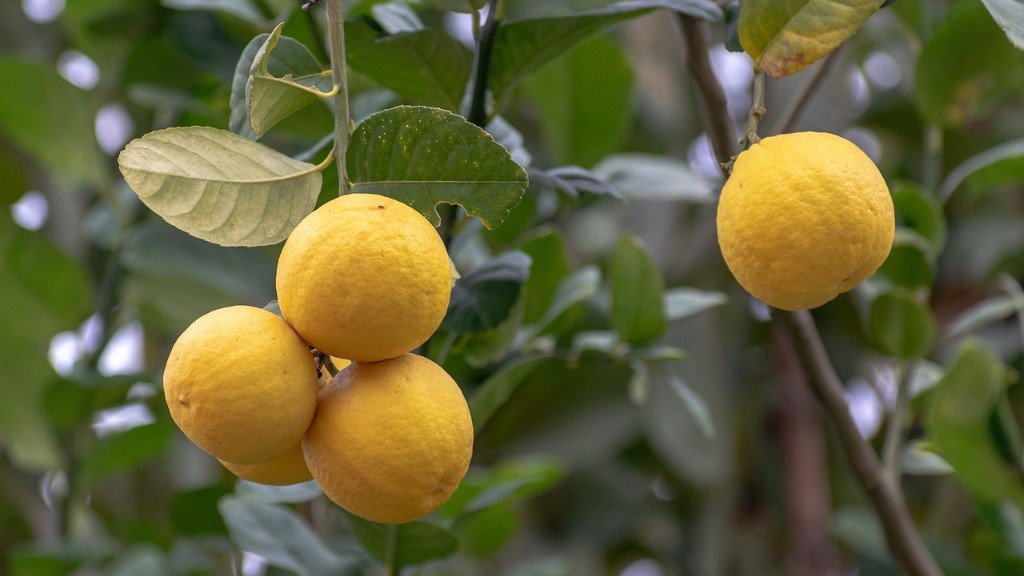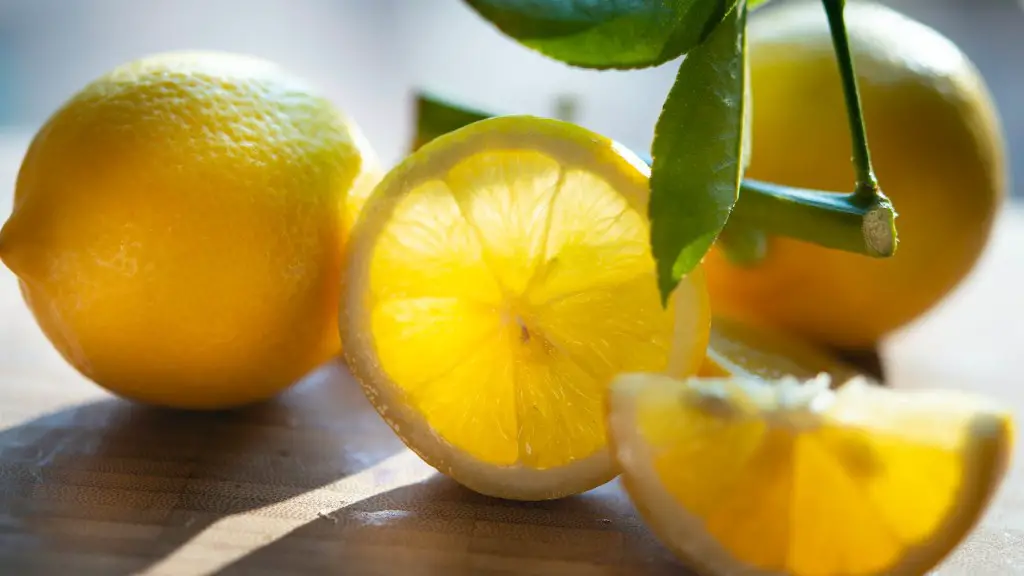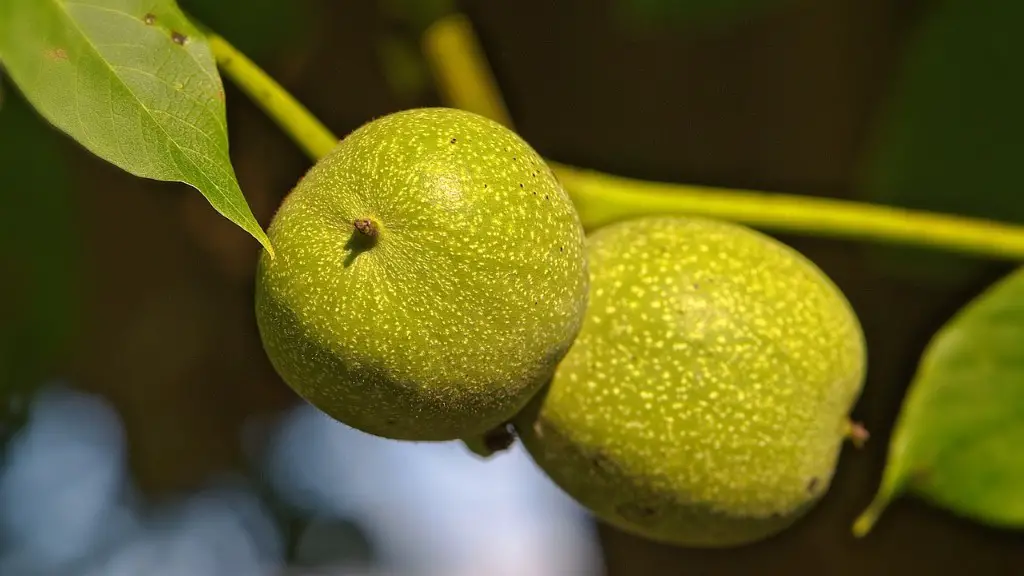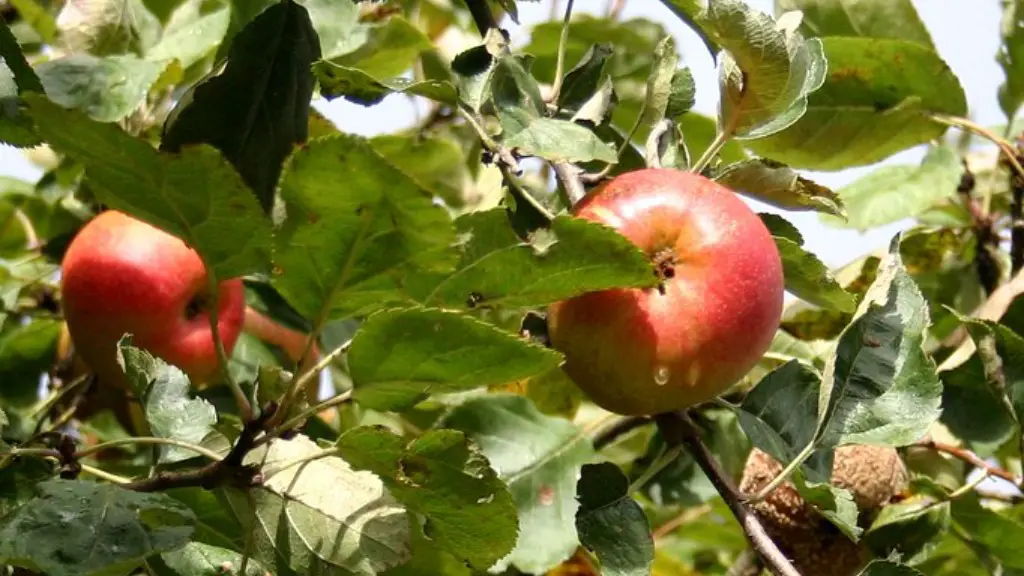When to pick lemons off a lemon tree is an important question for any grower. It can determine the success of the harvest. Generally, lemons should be harvested when they reach full maturity as this will produce optimal flavors. The ideal time for harvesting lemons can vary depending on a variety of factors, such as climate, region, and growth stage of the tree. To ensure that you harvest your crop at the peak of ripeness, there are a few things you should watch for to know when to pick lemons from your tree.
The first indication that they are ripe is the size of the lemons. Well-ripened lemons will be larger and heavier than unripe ones. In addition, it should appear slightly softened, with a yellow color and a glossy surface. If the lemons are still firm or green, then they are not yet ready to be harvested. Another method is to check the texture. If the skin feels a little bit wrinkled and softer to the touch than when you first noticed the lemons, they should be harvest-ready.
When to pick lemons also depends on your desired use. If you are looking to make juice or use the lemon for culinary purposes, then pick when the lemons have their maximum amount of juice and the desired level of sweetness. This is usually when the lemons have a deep yellow color, are quite large, and soft. However, if you are looking for a bright yellow lemon that can be used as a decoration, then wait a little longer until the lemon is a very vibrant yellow. It is important to note that this does not mean the lemon is any sweeter; it simply gives it an attractive color for decorative purposes.
In order to determine when to pick lemons, the grower should consider the climate and local region in which the tree is planted. For example, in warmer climates, lemons will ripen faster than in colder climates. Also, it is important to keep an eye on the tree and watch for how quickly the lemons are growing. If the growth is slow, they may take a while longer to reach peak ripeness.
Finally, another key factor in determining when to pick lemons is the tree’s maturity. Generally speaking, younger trees may need more time to produce fully-ripened fruits. Additionally, a tree can enter a state of rest during the winter months. This means that there will be no new growth or development of new fruits until the warmer growing season resumes. For this reason, it is important to check the age and growth rate of the tree before determining when to pick the lemons.
Lemon Tree Varieties
There are many different varieties of lemon trees available for gardeners to grow. Each type will have its own time frame for ripeness, and the methods used to determine when to pick can vary from variety to variety. For example, lemons from the ‘Meyer’ variety will tend to be more round and sometimes even tinged with red when they are ripe. Another popular variety is the ‘Eureka’ which will produce larger fruits with a thicker rind.
When planting or searching for a lemon tree, the grower must first decide which type of tree they want to grow. This can be based on the desired flavor, size, texture, and appearance of the fruits they will produce. Knowing the type of tree you are growing can help you determine how to tell if they are ripe and when to pick them. Some trees will also be more resistant to disease than others and this should also be taken into consideration when choosing a variety.
For those who live in cooler climates, some varieties of lemon trees may be better suited for their environment. For example, the ‘Meyer’ lemon tree is more tolerant of colder temperatures and is a more popular choice for such climates. This can be beneficial for growers living in an area with harsher climates because it will allow them to enjoy the fruits of their labor. However, this variety, as well as other cold-tolerant varieties, will generally take longer to ripen and may require different methods of determining when to pick the lemons.
Additionally, some lemon trees may also need to be handpicked to reach full ripeness. Some gardeners may choose to simply let the lemons remain on the tree until they are ready to be picked while others may handpick them as they become ripe. Whichever method is chosen, it is important to remember that different varieties of lemon trees will require different approaches when determining when to pick them.
Lemon Tree Care
The key to producing a good crop of lemons is proper lemon tree care and maintenance. Adequate tree care involves providing the tree with the necessary water, fertilizer, and pruning to ensure it stays healthy. Lemon trees also need to be pruned in order to prevent over-fruiting. If too many fruits are allowed to remain on the branches, they may become overcrowded and affect the size and quality of the fruit.
In addition to pruning, it is also important to provide the right amount of water. Lemon trees require less water than many other fruit trees and actually prefer slightly drier conditions. Too much water can stunt the growth of the tree and can lead to diseases such as root rot. The soil should be checked regularly for moisture and watered accordingly.
The tree’s fertilizer needs will also have an impact on when to pick lemons. If it is not receiving enough nutrients, the tree may not produce fruits at the desired level of ripeness. This can lead to smaller, unripe fruits which will lack the sweetness and flavor of properly ripened lemons. Therefore, it is important to ensure that the lemon tree is receiving the correct nutrients so that when it is ready for picking, the lemons are at their peak of ripeness.
In addition to fertilizing the lemon tree, it is important to monitor the pH of the soil. Lemons prefer a slightly acidic soil, and this must be maintained if you want optimum yields. The pH of the soil should be checked once a week and adjustments made as necessary. This will help ensure that the tree receives the right balance of nutrients and produce the best results.
Harvesting Lemons
When it comes time to harvest the lemons, the process can be quite simple. First, the fruits should be picked one at a time from the stems, being careful not to damage the tree in the process. If the fruit is still a bit unripe, it can be left on the tree for a few more days. However, it is important to keep an eye on the fruit and make sure it does not become overripe.
Once the lemons are picked, they should be washed and laid out to dry. This will help prevent mold and ensure that the lemons have a longer shelf life. After drying, it is important to store them in an airtight container in a cool, dark place to keep them fresh. In addition, some may choose to add a few drops of lemon oil to the container to help preserve the aroma and flavor.
When selecting and harvesting lemons, it is important to remember that different varieties of lemons will ripen at different times. Therefore, different methods should be used to determine when to pick the lemons. Consideration of climate, region, and growth of the tree should be taken into account as well as the lemon tree’s care and maintenance. With the right guidance and preparation, you can have the perfect lemon tree and the perfect crop of lemons for your needs.
Lemon Storage
Once the lemons have been harvested and prepared for storage, the next step is storing them for future use. This process can depend on the intended purpose for the lemons, but generally, it is suggested to store them in the refrigerator for up to a month to keep them fresh. As previously mentioned, adding a few drops of lemon oil to the container can help maintain the quality and extend the shelf life of the lemons.
If the lemons are turned into juice, they should be used within two weeks of being bottled. Freshly squeezed lemon juice can be stored in the refrigerator for up to two weeks, or it can be frozen for later use. Either way, it is important to remember that it will not keep its flavor and nutritional value as long as freshly picked lemons.
For long-term storage, it is best to dry the lemons. This can be done by either slicing them thinly and sun-drying or by using a dehydrator. Once dried, the lemons can be stored in an air-tight container for up to a year and vital nutrients will still remain. Dried lemons are a great way to keep lemons for longer periods of time and can be used in teas, sauces, marinades, and more.
Whichever method of storage is chosen, it is important to protect the lemons from light, air, and moisture. This will help ensure that they retain their quality and nutritional value and stay as fresh as possible. With proper care and storage, your lemons will be good for several weeks or even months.
Lemon Uses
Lemons are one of the most versatile fruits when it comes to cooking and baking. From drinks to desserts to savory dishes, lemons can add the perfect zest to any recipe. Lemon juice can be used to add tartness, sweetness, or even color, depending on the desired outcome. Lemon zest can be added to cake, salad dressings, sauces, and more to give it a bright, citrusy flavor.
Lemon juice is also a great cleaning agent for the home, and can be used to clean cutting boards and even aluminum surfaces. Making a solution of one part lemon juice to three parts water is an effective way to clean surfaces without the use of harsh chemicals. Additionally, the juice can be used to highlight and lighten the color of different fabrics in the laundry. Of course, when using lemon juice, it is important to remember to wear protective gloves to avoid any skin irritation.
Finally, lemons can also be used in various health and beauty applications. For example, the juice of the lemon can be used as a natural astringent. Slicing a lemon and rubbing it on your skin will help to remove dirt and oil and can be used as a natural exfoliator. Additionally, drinking lemon water in the morning can help to detoxify the body, improve digestion, and increase energy levels.
Lemons are a great addition to any kitchen and can have a variety of uses. It is important to know when to pick lemons and the best ways to store them so that they will retain their flavor and quality for as long as possible. With the right knowledge, you can enjoy the lemons from your lemon tree for months to come.
